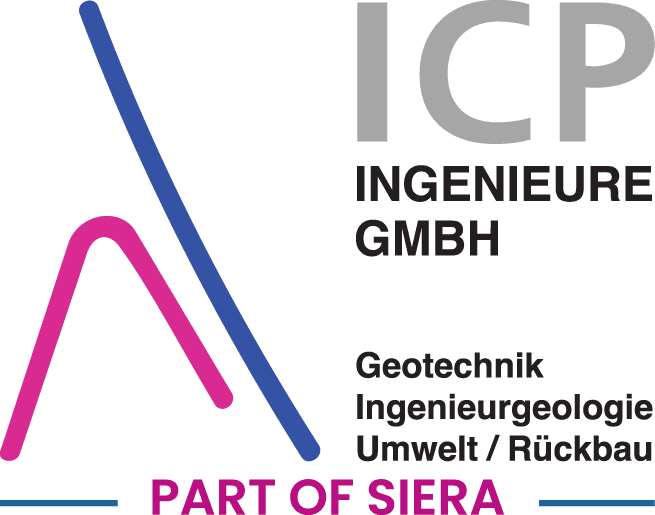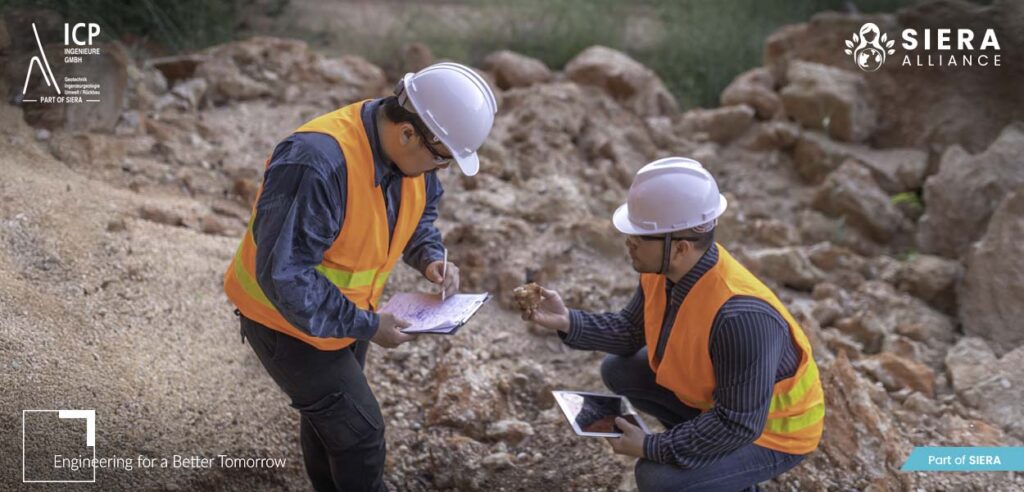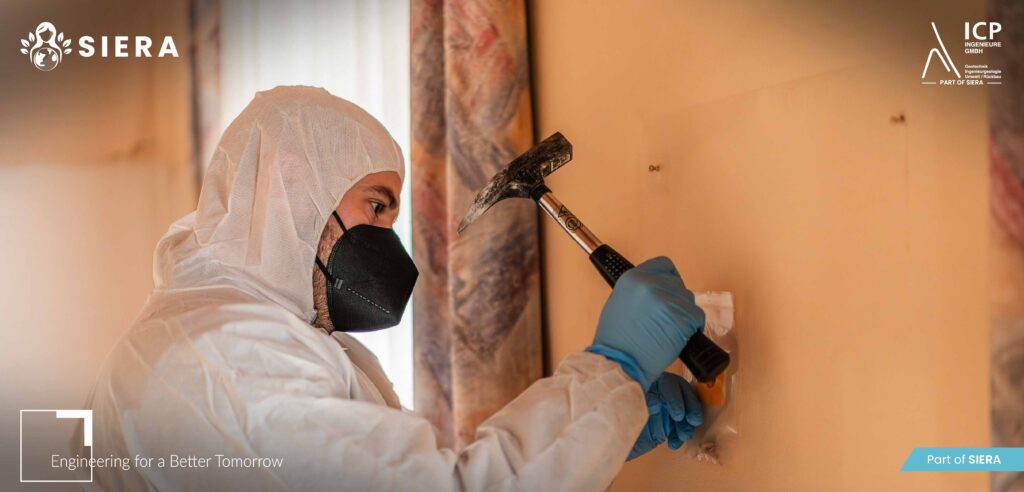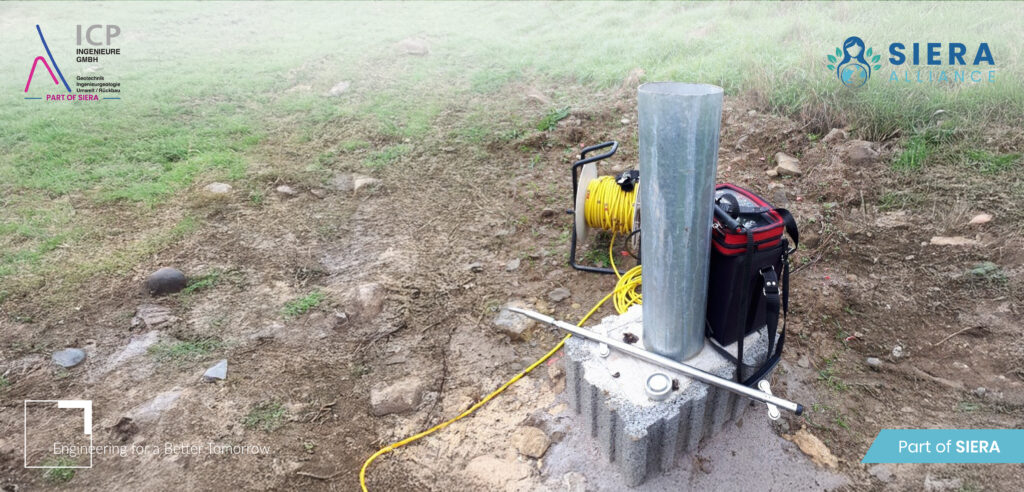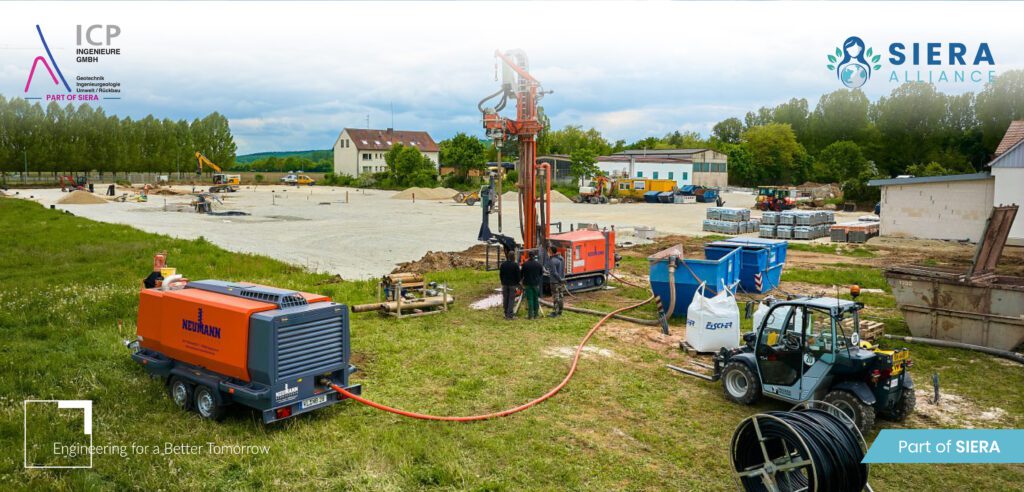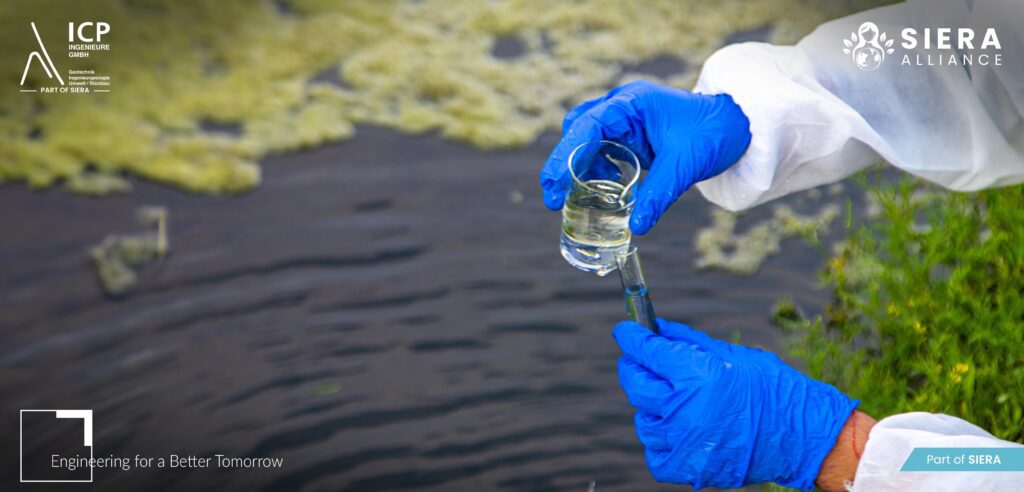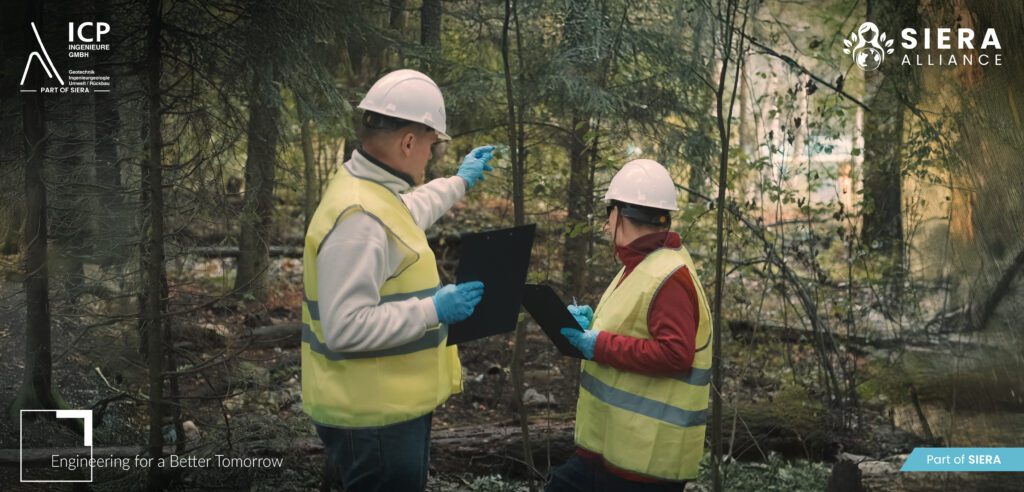Understanding Geotechnical Engineering: Your Guide to Safe Ground Investigation
Before ground is broken, construction companies must verify the feasibility of their site. This makes soil exploration the first and most critical step in building durable, environmentally compliant and structurally sound infrastructure.
At ICP Ingenieure, part of SIERA, our expertise in geotechnics, landfill construction and environmental engineering ensures that every subsurface investigation supports project specifications, sustainability goals and regulatory compliance.
This article outlines everything you need to know about soil exploration — from definitions and techniques to real-world applications and challenges.
What Is Soil Exploration?
Soil exploration is the systematic investigation of subsurface conditions using field tests, laboratory analyses and advanced geophysical imaging.
Techniques such as borehole drilling, soil boring and geophysical surveys collect essential data on the soil’s physical, chemical and structural properties
This geotechnical site investigation forms the foundation for safe design, material selection and risk mitigation in modern construction.
Why Soil Exploration Matters in Construction
Accurate soil profiling enables engineers to avoid costly structural failures and environmental hazards. Soil exploration is crucial for:
- Preventing subsidence and instability
- Supporting landfill construction with tested mineral materials and geosynthetics
- Detecting subsurface contamination and legacy pollution
- Planning foundations for tunnels, treatment plants and embankments
- Ensuring compliance with environmental impact assessments and waste laws
ICP’s interdisciplinary teams bring together geologists, environmental scientists and engineers to deliver comprehensive solutions, from investigation to implementation.
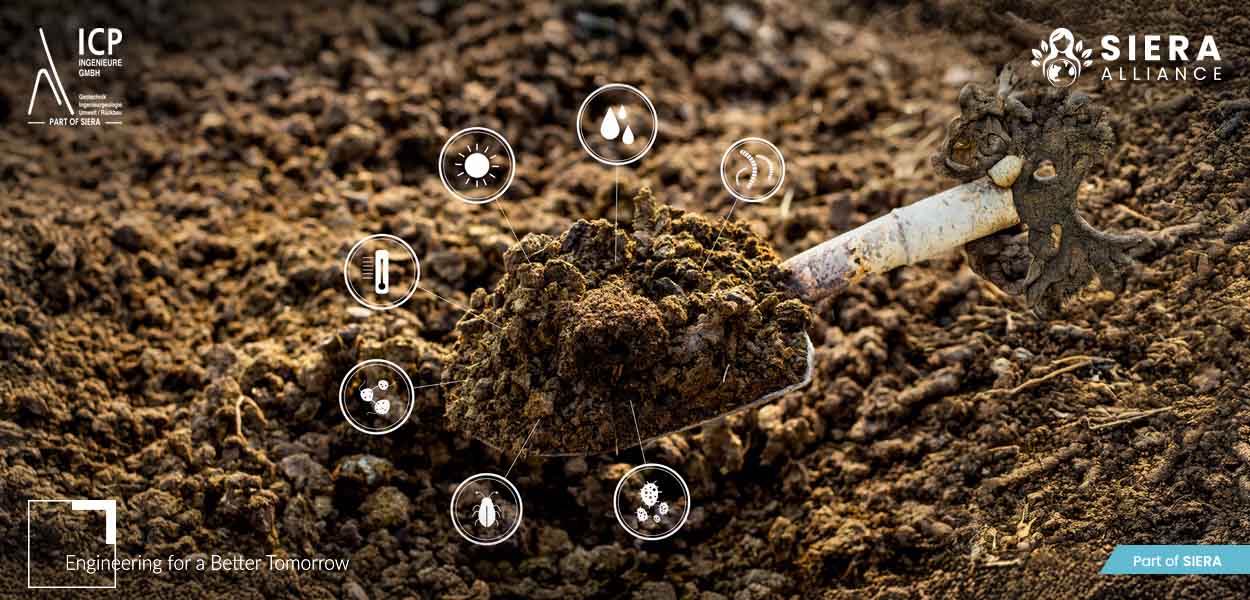
Key Objectives of Soil Exploration
At ICP Ingenieure, soil exploration is more than a mere requirement — it is a strategic investment in infrastructure resilience and long-term sustainability.
Soil exploration serves a critical function in ensuring both the technical integrity and environmental compliance of infrastructure projects.
Strategically, it guarantees safe and optimized construction design by ensuring that foundations are built on reliable ground.
Beyond these technical goals, soil exploration provides essential insights that inform project approval processes, environmental risk assessments and overall planning.
It also supports the selection of quality-assured materials for landfill engineering and earthworks. Furthermore, the data collected and analyzed feeds into essential documentation for permits, life cycle assessments (LCAs) and environmental reviews.
Types of Soil Exploration
- Preliminary (Reconnaissance) Exploration
This early-stage assessment includes visual inspections, shallow sampling and analysis of historical data to flag immediate risks and plan detailed investigations. - Detailed Soil Exploration
This phase employs borehole drilling, soil boring and geophysical surveys to develop complete soil profiles. It is essential for projects such as tunnel construction, landfill expansion and brownfield redevelopment.
It also supports the selection of quality-assured materials for landfill engineering and earthworks. Furthermore, the data collected and analyzed feeds into essential documentation for permits, life cycle assessments (LCAs) and environmental reviews.
Modern Methods of Soil Exploration
ICP Ingenieure — part of SIERA Alliance — employs a comprehensive suite of soil exploration techniques, carefully selected and tailored to meet the specific requirements of each project. This integrated approach ensures precise subsurface characterization, reliable data collection and compliance with geotechnical and environmental standards.
One of the core methods is borehole drilling, where mechanical or rotary drills are used to penetrate deep into the ground.
One of the core methods is borehole drilling, where mechanical or rotary drills are used to penetrate deep into the ground.
Soil boring techniques, such as the Standard Penetration Test (SPT) and Cone Penetration Test (CPT), are used to evaluate soil density, shear resistance and load-bearing capacity. These tests are critical for determining the mechanical behavior of soils, directly informing foundation design, excavation planning and structural load distribution.
For non-invasive, large-area assessments, ICP utilizes geophysical surveys including Ground Penetrating Radar (GPR) and Electrical Resistivity Tomography (ERT). These advanced technologies provide a high-resolution image of the subsurface without disturbing the soil. They are particularly effective in detecting underground voids, differentiating soil and rock layers, and identifying potential contamination or obstacles —making them ideal for both environmental assessments and tunnel alignment planning.
Finally, test pits and trenches offer a practical method for shallow subsurface investigations. These controlled excavations allow visual inspection of soil layers and enable bulk sampling for further laboratory analysis. Test pits are especially useful during Field Inspection Documentation (FID) processes and construction site supervision, offering immediate, on-site insights into soil consistency and stratification.
By combining these methods into a project-specific strategy, ICP Ingenieure delivers accurate, actionable data that strengthens the design, safety and sustainability of every project it supports.
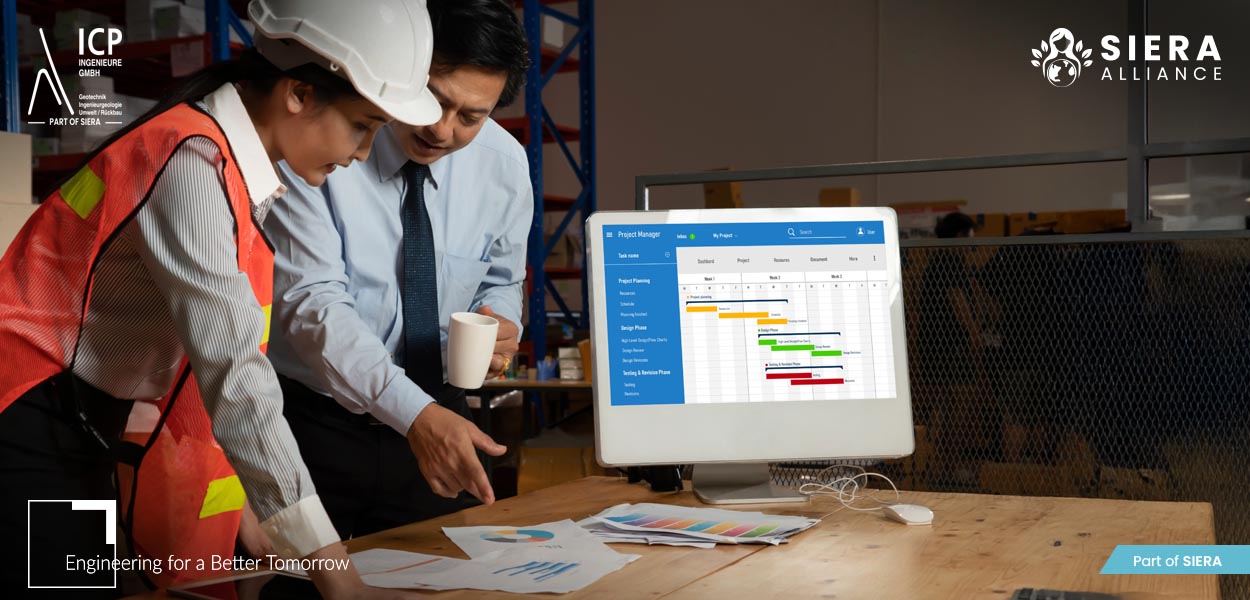

Soil Sampling and Laboratory Testing
Robust sampling is critical for reliable geotechnical site investigation. ICP applies:
- Disturbed samples for classification and compaction
- Undisturbed samples for strength and permeability analysis
- Environmental samples for contaminants like heavy metals, hydrocarbons or leachate
In-house labs conduct:
- Grain size distribution
- Atterberg limits
- Shear strength and consolidation
- Permeability and compaction
- Chemical analysis for hazardous substances
These insights guide everything from foundation engineering to compliant use of building materials in landfill construction.
Data Interpretation and Reporting
Soil data becomes valuable only when correctly analyzed. ICP transforms raw findings into actionable intelligence by:
- Classifying soils and identifying aquifer layers
- Recommending foundation types and soil stabilization methods
- Evaluating slope stability and settlement risks
- Supporting permit approvals and environmental risk assessments
All findings are documented in reports tailored to both engineering needs and environmental regulators.
Applications Across Infrastructure and Environmental Sectors
Landfill Construction: Secure landfills depend on verified soil stability, efficient gas and leachate management, and accurate layer composition — all ensured through advanced exploration and lab testing.
Tunnel and Infrastructure Projects: Soil investigation supports alignment planning, avoids fault lines and ensures groundwater management in large-scale tunneling.
Contaminated Site Redevelopment: Soil exploration identifies legacy pollutants and supports the safe reuse of brownfield sites, enabling sustainable urban growth.
Environmental Planning: Soil data supports life cycle assessments (LCAs), remediation design and sustainable urban development strategies.
Building Renovations and Expansions: For existing buildings, subsurface analysis helps plan safe upgrades without compromising structural integrity.
Challenges and Limitations in Soil Exploration
Despite its value, soil exploration faces real-world challenges:
Urban or hazardous sites may restrict access, complicating drilling or sample extraction. Budget limitations can limit test depth or scope.
Natural variability in soil layers, even over short distances, increases the complexity of interpretation. Additionally, environmental risks—such as groundwater disruption or surface contamination during drilling—must be carefully managed.
Interpreting mixed or contaminated profiles requires advanced experience in geotechnics and environmental chemistry.
At ICP Ingenieure, we overcome these challenges with low-impact technologies, strategic planning, and expert coordination across geotechnical, geological, and environmental teams.
Build on Solid Ground with ICP Ingenieure
Eine fundierte Baugrunderkundung ist das Fundament für widerstandsfähiges, regelkonformes und nachhaltiges Bauen.
At ICP Ingenieure, part of SIERA, we offer end-to-end geotechnical and environmental solutions — from borehole drilling and geophysical surveys to FID inspections and landfill design.
With a deep understanding of both engineering and environmental science, we help clients plan and build with precision, safety and sustainability at the core.
Whether you're launching a new infrastructure project, upgrading an existing facility, or managing a contaminated site, our team is here to support your goals — on solid and sustainable ground.
Frequently Asked Questions (FAQs)
1. What is soil exploration?
Soil exploration is the investigation of underground soil conditions to guide safe and sustainable construction. It involves field tests, lab analyses and geophysical surveys
2. How is soil exploration different from site investigation?
Soil exploration focuses on subsurface material properties, while site investigation covers the broader site context, including hydrology, environmental factors and topography.
3. What data is collected during soil exploration?
Typical data includes soil classification, hydraulic conductivity, groundwater levels, contamination risks and structural properties such as compressibility and bearing capacity.
4. Why is soil investigation important in construction?
It ensures stable foundations, supports design decisions and helps comply with environmental and safety regulations.
